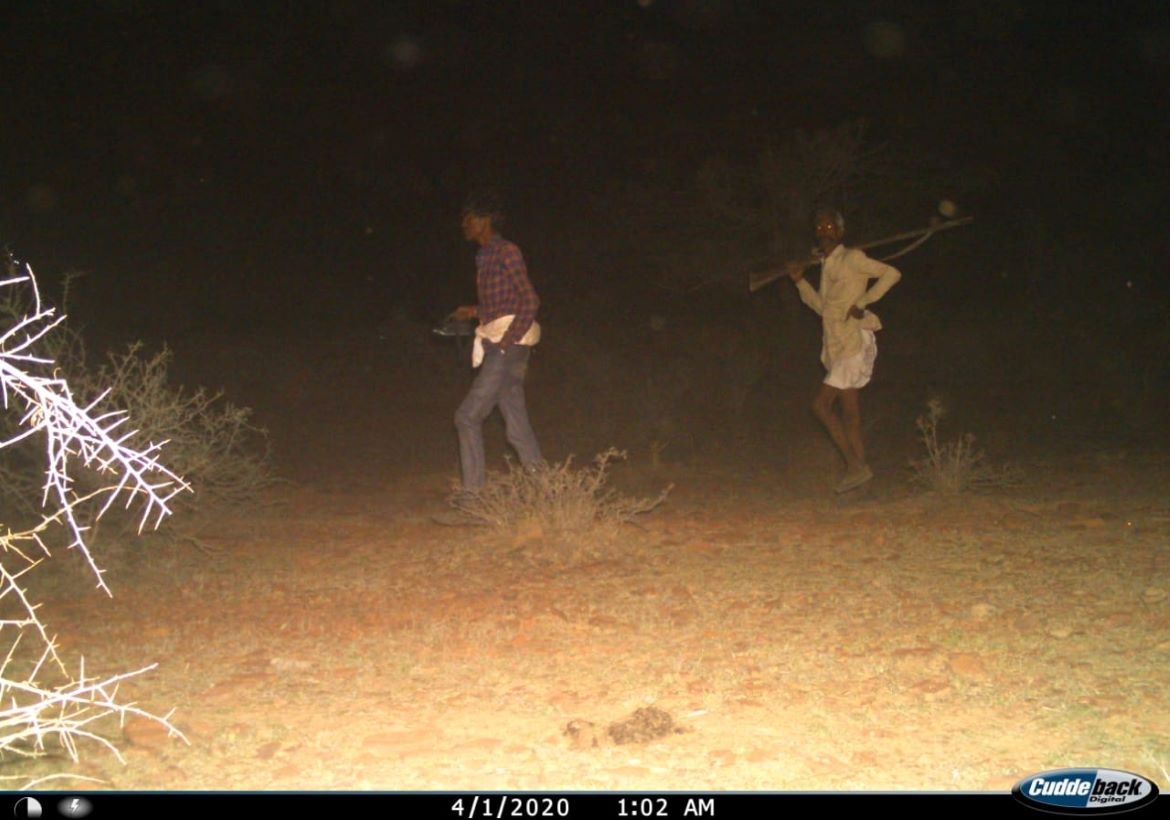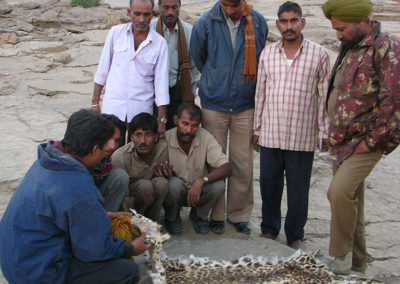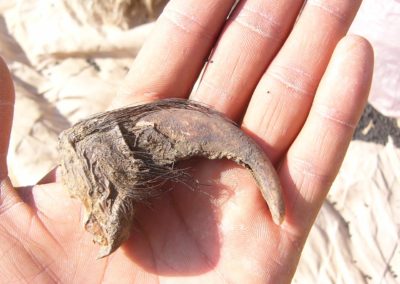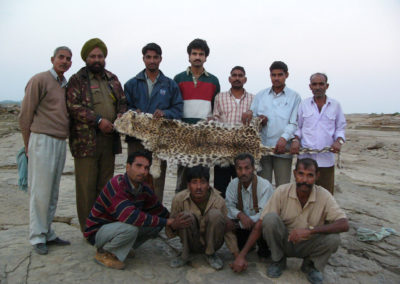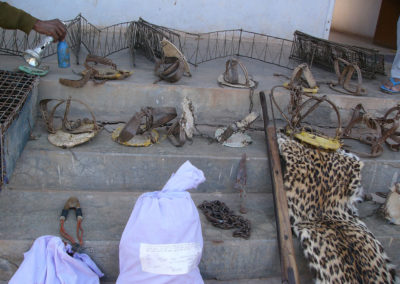Anti-Poaching
Poaching threatens the tiger both directly and indirectly, for it can also result in the loss of its prey base.
Starting with the first improvised raid in 2005, Tiger Watch’s anti-poaching initiatives have evolved into one of the most successful anti-poaching operations in the country. Had Tiger Watch not launched this program, which revealed that poachers primarily belonging to the Mogya traditional hunting tribe targeted tigers in the reserve reducing the population to just 18 in 2004, Ranthambhore would have seen the extinction of its tiger population, similar to what transpired in Sariska Tiger Reserve.
Over the years, Tiger Watch has captured close to 160 wildlife criminals and also managed to seize 1 tiger skull and skin, 40 leopard skins, 50 illegal weapons, 50 jaw traps and many other illegal wildlife artefacts. The rise of Ranthambhore’s tiger population has been the biggest tangible result of the anti-poaching campaign.
While major gangs poaching the big cat have now been neutralised, poaching for jungle meat is still rampant. A new stratagem in the form of local community involvement has played a pivotal role in keeping a watch on such activities. Timely reporting from camera traps and local community databases has led to the capture of poachers, and for the first time, it has made anti-poaching preventative in nature rather than after the fact. Anti-poaching has long been considered to be Tiger Watch’s forte, and this single program has put us in the spotlight for conservationists. David Shepherd Wildlife Foundation, Sujan, and Dieter & Liz Gutmann have been longstanding supporters of our anti-poaching work.
Reports
Armed Poachers in the Forest (2015-2020)
Our tiger monitoring team, made up of local community youth called the Village Wildlife Volunteers, regularly monitors the movement of wild animals in peripheral areas of Tiger Reserve by camera trapping. Many times, poachers armed with firearms pass in front of the camera traps and get photographed
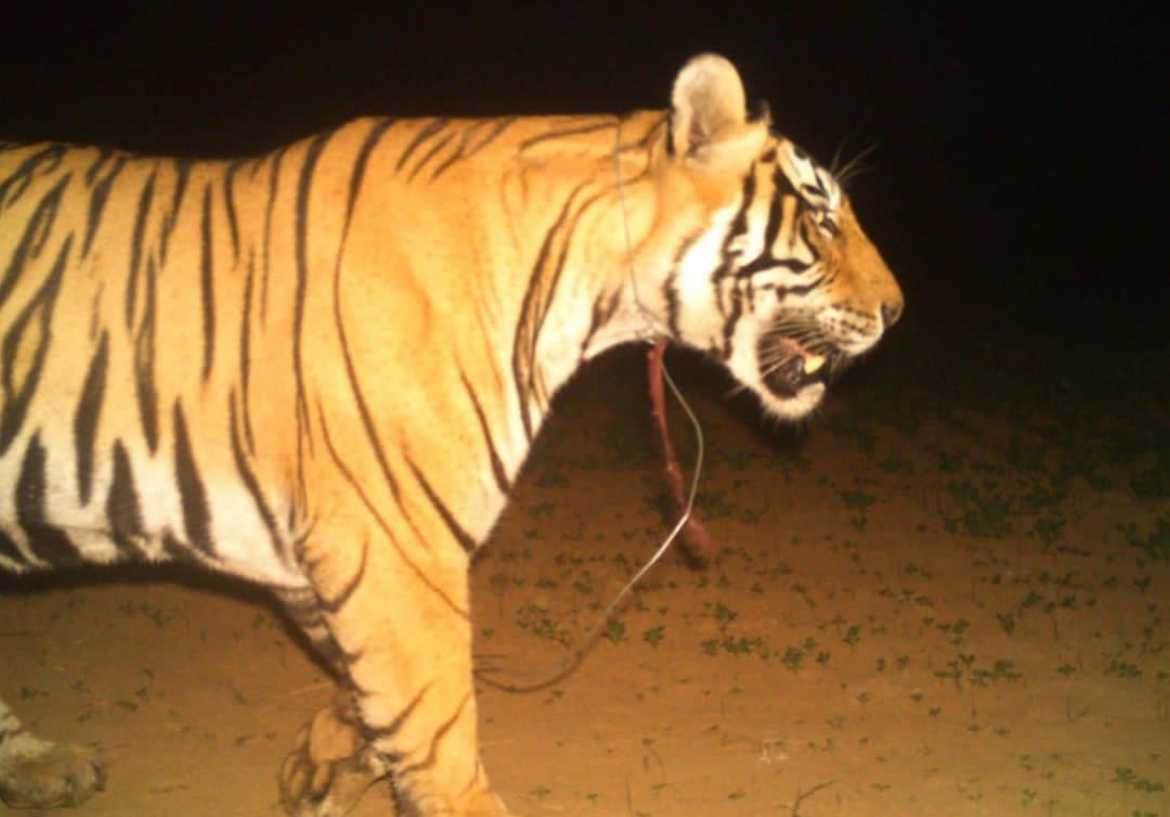
Wire Snaring (2015-2020)
Snaring is a ruthless way to poach wildlife. Snares are made from the clutch/brake wires of motorbikes, which are then perfectly primed to trap wildlife. Wire snares are used by poachers to kill big animals like deer and antelopes. A simple brake cable from a motorbike can kill large ungulates and even a Tiger
Gunpowder Explosives (2015-2021)
Crude gunpowder bombs or golas (because of their spherical shape) are a lethal menace to both humans and wildlife living in and around the protected areas of Ranthambhore Tiger Reserve. These bombs often serve the dual purpose of unethical crop protection and procurement of jungle meat for the black market
Curbing the Crisis
Curbing the Crisis is an eye-opening 28-minute documentary by Tiger Watch, concerning the loss of tigers in Ranthambhore National Park, one of India’s most celebrated tiger reserves. The film features shocking and rare footage of poachers confessing their crimes and the reasons for the crisis to recur have been highlighted in the movie. It is a must-watch for those concerned with wildlife conservation! The entire footage is original, not dramatised, recreated or digitally modified.
The film’s total budget including shooting, editing and post-production has costed less than Rs. 5000 (105 USD).
This film was made in the Year 2006.
The Hunted
A Short Documentary by investigative journalist Jay Mazoomdaar, telling the story of Mogya tribal hunters – how they live, how they hunt tigers, how the delivery chain works, how the wildlife mafia exploits them, and if they have a choice…
Gallery
Address:
Maa Farm,
Ranthambhore Road,
Khilchipur, Sawai
Madhopur, Rajasthan,
India - 322 001
Phone: (+91) 90015 07777

